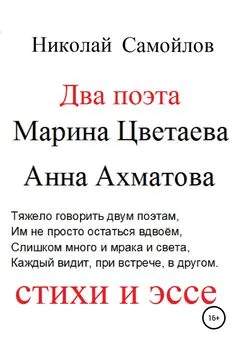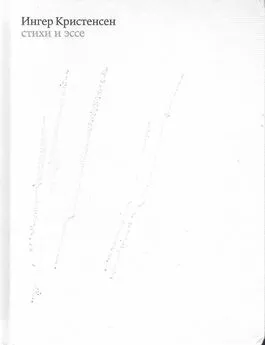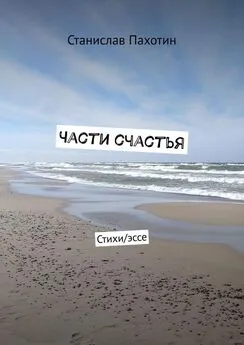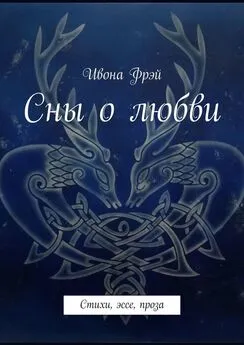Уистан Оден - Стихи и эссе
- Название:Стихи и эссе
- Автор:
- Жанр:
- Издательство:неизвестно
- Год:неизвестен
- ISBN:нет данных
- Рейтинг:
- Избранное:Добавить в избранное
-
Отзывы:
-
Ваша оценка:
Уистан Оден - Стихи и эссе краткое содержание
УИСТЕН ХЬЮ ОДЕН (WYSTAN HUGH AUDEN; 1907–1973) — англо-американский поэт, драматург, публицист, критик. С 1939 года жил в США. Лауреат Пулицеровской и других литературных премий. Автор многих поэтических сборников, среди которых «Танец смерти» («The Dance of Death», 1933), «Гляди, незнакомец!» («Look, Stranger!», 1936), «Испания» («Spain», 1937), «Век тревоги» («The Age of Anxiety», 1947), «Щит Ахилла» («The Shield of Achilles», 1955), «Избранные стихи» («Collected Shorter Poems», 1968).
Стихи и эссе - читать онлайн бесплатно ознакомительный отрывок
Интервал:
Закладка:
1938
TRINCULO'S SONG
Mechanic, merchant, king,
Are warmed by the cold clown
Whose head is in the clouds
And never can get down.
Into a solitude
Undreamed of by their fat
Quick dreams have lifted me;
The north wind steals my hat.
On clear days I can see
Green acres far below,
And the red roof where I
Was Little Trinculo.
There lies that solid world
These hands can never reach;
My history, my love,
Is but a choice of speech.
A terror shakes my tree,
A flock of words fly out,
Whereat a laughter shakes
The busy and devout.
Wild images, come down
Out of your freezing sky,
That I, like shorter men,
May get my joke and die.
From "Under Which Lyre"
In our morale must lie our strength:
So, that we may behold at length
Routed Apollo's
Battalions melt away like fog,
Keep well the Hermetic Decalogue,
Which runs as follows: —
Thou shalt not do as the dean pleases,
Thou shalt not write thy doctor' thesis
On education,
Thou shalt not worship projects nor
Shalt thou or thine bow down before
Administration.
Thou shalt not answer questionnaires
Or quizzes upon World-Affairs,
Nor with compliance
Take any test. Thou shalt not sit
With statisticians nor commit
A social science.
Thou shalt not be on friendly terms
With guys in advertising firms,
Nor speak with such
As read the Bible for its prose,
Nor, above all, make love to those
Who wash too much.
Thou shalt not live within thy means
Nor on plain water and raw greens.
If thou must choose
Between the chances, choose the odd;
Read The New Yorker, trust in God;
1946
THE QUEST
1. The Door
Out of it steps the future of the poor,
Enigmas, executioners and rules,
Her Majesty in a bad temper or
The red-nosed Fool who makes a fool of fools.
Great person eye it in the twilight for
A past it might so carelessly let in,
A widow with a missionary grin,
The foaming inundation at a roar.
We pile our all against it when afraid,
And beat upon its panels when we die:
By happening to be open once, it made
Enormous Alice see a wonderland
That waited for her in sunshine, and,
Simply by being tiny, made her cry.
2. The Preparations
All had been ordered weeks before the start
From the best firms at such work; instruments
To take the measure of all queer events,
And drugs to move the bowels or the heart.
A watch, of course, to watch impatience fly
Lamps for the dark and shades against the sun;
Foreboding, too, insisted on a gun
And colored beads to soothe a savage eye.
In the theory they were sound on Expectation
Had there been situations to be in;
Unluckily they were their situation:
One should not give a poisoner medicine,
A conjurer fine apparatus, nor
A rifle to a melancholic bore.
3. The Crossroads
The friends who met here and embraced are gone,
Each to his own mistake; one flashes on
To fame and ruin in a rowdy lie,
A village torpor holds the other one,
Some local wrong where it takes time to die:
The empty junction glitters in the sun.
So at all quays and crossroads: who can tell,
O places of decision and farewell,
To what dishonor all adventure leads,
What parting gift could give that friend protection,
So orientated, his salvation needs
The Bad Lands and the sinister direction?
All landscapes and all weathers freeze with fear,
But none have ever thought, the legends say,
The time allowed made it impossible;
For even the most pessimistic set
The limit of their errors at a year.
What friends could there be left then to betray,
What joy take longer to atone for. Yet
Who would complete without extra day
The journey that should take no time at all?
4. The Pilgrim
No windows in his suburb lights that bedroom where
A little fever heard large afternoons at play:
His meadows multiply; that mill, though, is not there
Which went on grinding at the back of love all day.
Nor all his weeping ways through weary wastes have found
The castle where his Greater Hallows are interned;
For broken bridges halt him, and dark thickets round
Some ruin where an evil heritage was burned.
Could he forget a child's ambition to be old
All institutions where it learned to wash and lie,
He'd tell the truth, for which he thinks himself too young,
That everywhere on the horizon of his sigh
Is now, as always, only waiting to be told
To be his father's house and speak his mother tongue.
5. The City
In villages from which their childhood's came
Seeking Necessity, they had been taught
Necessity by nature is the same,
No matter how or by whom it be sought.
The city, though, assumed no such belief,
But welcomed each as if he came alone,
The nature of Necessity like grief
Exactly corresponding to his own.
And offered them so many, every one
Found some temptation fit to govern him;
And settled down to master the whole craft
Of being nobody; sat in the sun
During the lunch-hour round the fountain rim;
And watched the country kids arrive, and laughed.
6. The First Temptation
Ashamed to be the darling of his grief
He joined a gang of rowdy stories where
His gift for magic quickly made him chief
Of all these boyish powers of the air;
Who turned his hungers into Roman food,
The town's asymmetry into a park;
All hours took taxis; any solitude
Became his flattered duchess in the dark.
But if he wished for anything less grand,
The nights came padding after him like wild
Beasts that meant harm, and all the doors cried Thief;
And when Truth met him and put out her hand,
He clung in panic to his tall belief
And shrank away like an ill-treated child.
7. The Second Temptation
The library annoyed him with its look
Of calm belief in being really there;
He threw away a rival's silly book,
And clattered panting up the spiral stair.
Swaying upon the parapet he cried:
"O Uncreated Nothing, set me free
Now let Thy perfect be identified,
Unending passion of the Night, with Thee."
And his long suffering flesh, that all the time
Had felt the simple cravings of the stone
And hoped to be rewarded for her climb,
Took it to be a promise when he spoke
That now at last she would be left alone,
And plunged into the college quad, and broke.
8. The Third Temptation
He watched with all his organs of concern
How princes walk, what wives and children say;
Reopened old graves in his heart to learn
What laws the dead had died to disobey.
And came reluctantly to his conclusion:
"All the arm-chair philosophers are false;
To love another adds to the confusion;
The song of pity is the Devil's Waltz."
And bowed to fate and was successful so
That soon he was the king of all the creatures:
Yet, shaking in an autumn nightmare saw,
Approaching down a ruined corridor,
A figure with his own distorted features
That wept, and grew enormous, and cried Woe.
9. The Tower
This is architecture for the odd;
Thus heaven was attacked by the afraid,
So once, unconsciously, a virgin made
Her maiden head conspicuous to a god.
Here on dark nights while worlds of triumph sleep
Lost Love in abstract speculation burns,
And exiled Will to politics returns
In epic verse that lets its traitors weep.
Yet many come to wish their tower a well;
For those who dread to drown of thirst may die,
For those who see all become invisible:
Here great magicians caught in their own spell
Long for a natural climate as they sigh
"Beware of Magic" to the passer-by.
10. The Presumptuous
They noticed that virginity was needed
To trap the unicorn in every case,
But not that, of those virgins who succeeded,
A high percentage had an ugly face.
The hero was as daring as they thought him,
But his peculiar boyhood missed them all;
The angel of a broken leg had taught him
The right precautions to avoid a fall.
So in presumption they set forth alone
On what, for them, was not compulsory:
And stuck halfway to settle in some cave
With desert lions to domesticity;
Or turned aside to be absurdly brave,
And met the ogre and were turned to stone.
11. The Average
His peasant parents killed themselves with toil
To let their darling leave a stingy soil
For any of those smart professions which
Encourage shallow breathing, and grow rich.
The pressure of their fond ambition made
Their shy and country-loving child afraid
No sensible career was good enough,
Only a hero could deserve such love.
So here he was without maps or supplies,
A hundred miles from any decent town;
The desert glared into his blood-shot eyes;
The silence roared displeasure: looking down,
He saw the shadow of an Average Man
Attempting the Exceptional, and ran.
12. Vocation
Incredulous, he stared at the amused
Official writing down his name among
Those whose request to suffer was refused.
The pen ceased scratching: though he came too late
To join the martyrs, there was still a place
Among the tempters for a caustic tongue
To test the resolution of the young
With tales of the small failings of the great,
And shame the eager with ironic praise
Though mirrors might be hateful for a while,
Women and books should teach his middle age
The fencing wit of an informal style
To keep the silences at bay and cage
His pacing manias in a worldly smile.
Интервал:
Закладка:

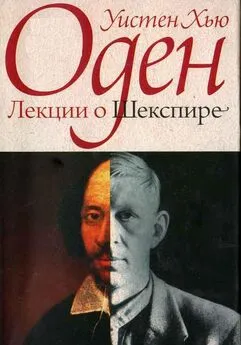
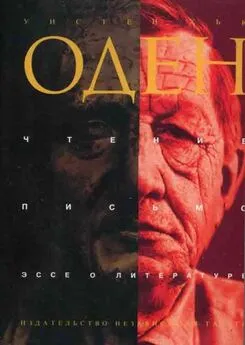
![Сергей Гандлевский - Счастливая ошибка [стихи и эссе о стихах]](/books/1076728/sergej-gandlevskij-schastlivaya-oshibka-stihi-i-esse.webp)
